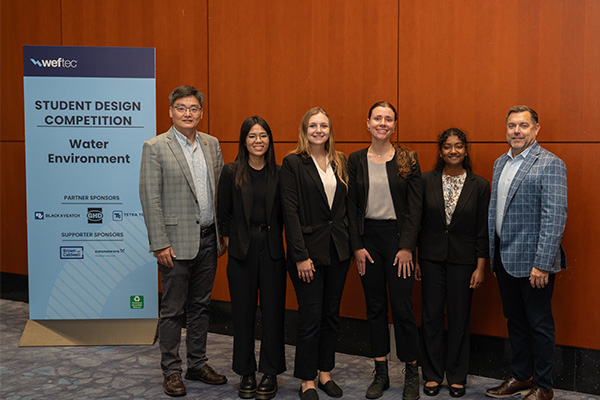CodeBlack offers mentoring, support to computer science students of color
The group aims to help Black students find a community and build a network of peers within the Department of Computer Science & Engineering

A few years ago, the Department of Computer Science & Engineering (CSE) realized it had a problem. Students from groups underrepresented in STEM were dropping out of CSE 131: Introduction to Computer Science at a higher rate than other students.
“There are a lot of students who may not have a computer science or coding background,” said Pryce Yebesi, a senior majoring in computer science and a teaching assistant in the department. “When you walk in the first day of CSE 131 and there are people chatting and trying to figure out how to even write a line of code, it can feel really daunting.”
James Gregory, a junior majoring in computer science, was one of those students.
“I had a little bit of experience coding in high school, but I hadn't done any actual projects or assignments like the ones in 131,” Gregory said. “It was helpful that people like Pryce and the other TAs were there to help out.”
That’s why Yebesi and a few other TAs began hosting panel sessions to help enrolled students survive those first few weeks. Each semester, juniors and seniors would meet with students to help them with class projects and ensure they had a community of peers and mentors to connect with.
“A lot of the students who took up the banner were ones who had experienced microaggressions from a professor or a TA that made the department feel less hospitable,” Yebesi said. “This is a field that can feel siloed or as if it’s hard to get help you need. A lot of what we’ve been working toward is making it feel less lonely.”
“It’s powerful to have a support system at all stages of the education process, and CodeBlack is a group of exceptionally talented students who support each other,” said Alvitta Ottley, assistant professor of computer science and the group’s faculty adviser. “It’s a vital resource for incoming students who might be feeling out of place, as we all sometimes do when we start a new journey.”
When in-person events and classes went virtual last spring, the group used that as an opportunity to expand its goals and cultivate more personal connections among students.
“The switch gave us an opportunity to have more personal connections as opposed to just having an event at the beginning of the semester,” Yebesi said. “We’re able to have a more sustained community.”
The group, now known as CodeBlack, has grown to 45 members and aims to helps students with issues beyond coursework.
“There are a lot of Black students who have gone for awesome opportunities and wanted to mentor and engage with other students to teach them the tricks of trade,” Yebesi said. “This community allowed them to do so.”
“The organization uses the expertise of current students and alums and offers peer support and advice on courses, internships, research and grad schools,” Ottley said. “Students have landed positions at companies like Apple, Google, Facebook, Microsoft and Robinhood or are doing incredible research in graduate school.”
Beyond sharing available internship or field experience opportunities, Yebesi said that for many students, just seeing what others have accomplished can inspire them to do more than they thought they could.
“It's so hard to know what’s possible when you're a first-year computer science student,” Yebesi said. “Knowing that these companies are an option and seeing what a lot of the upperclassmen have been able to do is important to a lot of people. A lot of Black computer science students are up to really amazing things right now.”
Gregory, who is interning at Microsoft this summer, said he’s looking forward to moving into a mentoring role within the group.
“I'm looking forward to sharing some of my own connections, like my internships, with the new community of rising sophomores and first-year CS students,” Gregory said.



